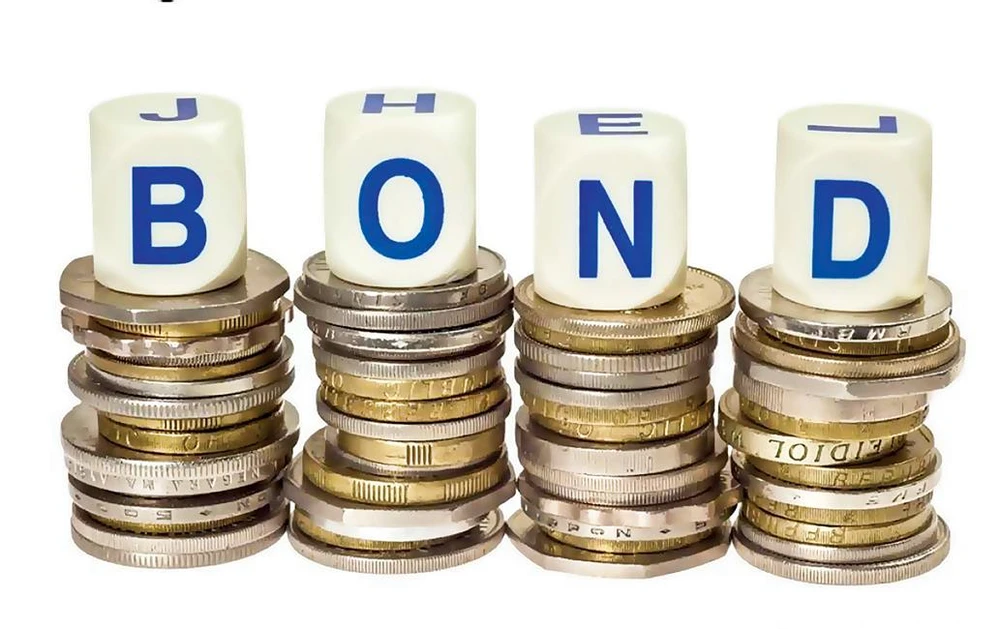
Strong growth of corporate bond market
The corporate bond market seems less attractive than stock market as it mainly offers fixed or floating interest rates. However, different from stock investment which require investors to analyze the potential and future of companies, bond investment is based much on the current quality of enterprises.
Bond investment decisions are more prudent and must follow the exclusionary rules and other detail quantitative tests. According to the international standards of bond investment, the un-safe bond is least prioritized for investment.
The escalation of the ongoing US-China trade war has impacted economy of most countries across the globe. Many central banks in the world have stopped their quantitative easing programs. The money policies of central banks have changed quickly while the foreign exchange rates have been volatile significantly over the period 2018-2019.
For Vietnam, although the economy is on a strong growth stage, the economic growth has been still impacted by the volatility of interest rate and foreign exchange rate. The stock market, after reaching a peak of 1,200 points at the beginning of 2018, has been gradually declining to the range of 940-950 points in 6M/2019. However, the corporate bond market has been increasing remarkably since beginning of this year and is going to replace part of the position of government bond market.
Corporate bond issuance has become the trend in the market now and the forms of corporate bond issuance in Vietnam currently are quite close to that of the international markets.
About VND 60,000bn (USD 2.56bn) of corporate bonds were issued in the first five months of 2019. The trading volumes of corporate bonds increased significantly in 2018, to reach VND 37,000bn. The corporate bond market has become the hot spot for domestic and foreign investments. At the end of the first quarter, the outstanding amount of corporate bonds was about VND 100,000bn, constituting 8% of total outstanding bonds.
In 6M/2019, there have been many corporate bond issuance plans of brokerage, real estate companies and banks. The banks issued VND 17,600bn, in which VPBank issued VND 5,600bn of 3-year bonds at 6.4-6.9%/year. In real estate sector, several companies which have issued corporate bonds in the first half include Phat Dat Real Estate (PDR), Ho Chi Minh City Infrastructure Investment (CII) and Dat Xanh Group (DXG).
The corporate bond market is going to be the popular investment channel of investors in Vietnam. Furthermore, the increase in the number of listed companies on Stock Exchanges (HNX, HOSE, UPCOM) will be the other driver for the development of corporate bond market as more companies will potentially issue bonds.
The corporate bond market is expected to not only attract the attendance of banks, securities company, institutional clients, but also individual investors.
Corporate bond investment consideration
The investment rules in corporate bond market are the same as for the stock market. The corporate bond is just another investment channel for investors to make their investment portfolio more diversified. Hence, the decision to invest in corporate bonds is dependent on experience and knowledge of investors.
If enterprises have good cash flow, the high leverage which is created by bond issuance is not a problem. However, if the company maintains high debt, while cash flow is poor, the bond holders may face risk of default.
Hence, investors have to do many studies before making investment decisions. The investors have to analyze the industry, the position of the company in the industry, the management skill of board of directors and board of management. The investors also have to evaluate the interest coverage ratio, capital structure, cash flow, and asset value of enterprises.
The investors have to note down all companies who are leaders in each industry. For example, the leading position of Vingroup in the real estate market is the key factor in evaluating its bond. This leading position is considered an indicator in determining the risk and the ability to pay debt of Vingroup.
The investors also look into the ratio of income versus the interest expense, and analyze the capital structure of companies. It may be a big risk if the proportion of debt from bonds is too high.
The investors have to use as many tests as possible to check the ability of issuers to pay debt. The investors have to do everything to make sure that the income is higher than interest expense and the assets value is higher than debt.
However, the financial statement analysis is not everything in evaluating the bonds. The outlook of the companies in the future is also important. The investors have to consider whether the companies are able to survive and grow in the future. The investors have to check all details on the list of factors that make bond holders face default risk and a good indicator to evaluate the ability to pay debt, which is the ratio of market value of equity versus total long term debt.




















